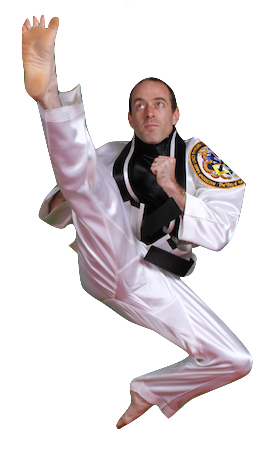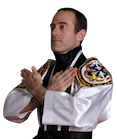
The Book Of Five Rings, By Miyamoto Musashi
Miyamoto Musashi was a legendary samurai swordsman, who claimed to have first killed a man when he was thirteen. He fought sixty-nine sword duels and was undefeated. For the last few decades of his life, he devoted himself to training and teaching. He wrote The Book of Five Rings in 1643. Although the book focuses on the practical elements of sword battle, Musashi understood that the martial arts are a way of life and not merely a mode of warfare. He wrote that "the true science of martial arts means practicing them in such a way that they will be useful at any time, and to teach them in a way that they will be useful in all things."
Indeed, Musashi's practical principles of warfare sometimes read like a Zen koan ("Even when still, your mind is not still; even when hurried, your mind is not hurried") or a self-help manual ("determine that today you will overcome your self of the day before, tomorrow you will win over those of lesser skill, and later you will win over those of greatest skill"). Similarly, his instruction on how to hold a sword resonates far beyond the battlefield: "Fixation is the way to death, fluidity is the way to life."
Many of his lessons echo those of Sun Tzu in The Art of War. Like Tzu, Musashi teaches that victory depends on knowing your opponent and catching him or her off-guard: "The way to win in a battle…is to know the rhythms of the specific opponents, and use rhythms that your opponents do not expect...." And when he urges readers to "make your ordinary bearing the bearing you use in martial arts, and make the bearing you use in martial arts your ordinary bearing," he is not only seconding Tzu's famous lesson in the importance of camouflaging our attacks ("all warfare is deception")--he is also reminding us that the lessons we learn in the dojahng should guide us in our daily lives, on and off of the mat.


